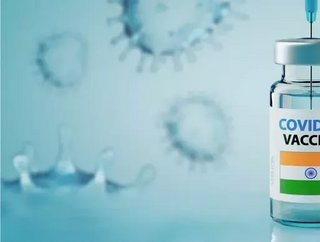India’s vaccine procurement policy: recovering from COVID-19

India recently entered another wave of COVID-19 which saw it become the second most-affected country in the world.
In the 24-hour period leading up to last Wednesday, the Indian government recorded a record-high of 382,315 cases and 3,780 deaths resulting in a total of 20mn cases across the country.
This sparked criticism from the public who claimed the government had been “too slow” in ordering vaccine doses.
The Head of the Serum Institute of India, Adar Poonawalla, fled the country after claiming that he had received threats from people needing the vaccine, resulting in India’s vaccine procurement policy coming under scrutiny.
Currently, the Indian government is using the Astrazeneca vaccine, produced by the SII, and Covaxin, made by the Indian firm Bharat Biotech, in its battle against the virus.
The Indian government has said that support from other Indian states allowed the vaccine procurement policy to be finalised and implemented.
Harsh Vardhan, Health and Family Welfare Minister for the Indian government stressed the importance of reacting quickly and providing support.
“In any battle, time is of the greatest essence. While the dreaded disease is spreading like a tsunami, it was critical to ease the controls and allow a free hand to the state governments as well as the private sector,” he said.
Criticism of the Indian government continued when an Indian media report claimed that it had placed any recent orders, which the government denied.
One solution to the problem allowing the country to recover from the crisis, as suggested by former Indian Prime Minister Manmohan Singh, was to “speed up vaccine production.”
Mr. Poonawalla said that achieving this “would not be easy” and that vaccine shortages could continue for “tow to three months.”
Meanwhile, Professor Indranil Mukhopadhyay of O.P. Jindal Global said trying to manage the procurement and the policy itself is a worry.
“It's going to be extremely difficult for poorer states to manage procurement and that is one concern…
“There is going to be a lot of chaos,” she said.
Editor of the Indian Journal of Medical Ethics, Professor Amar Jesani said that the vaccine procurement policy was “too complicated,” advising that the government should have used its National Universal Immunisation Programme (NUIP).
The NUIP allows the government to procure and distribute COVID-19 vaccines.
Mr. Poonawalla also pointed out that “the population of India is huge” and that “even the most advanced countries and companies are struggling.”
Some people, however, are hopeful that recovery from the COVD-19 crisis is still possible.
Ms Shobana Kamineni, Vice Chairman of Apollo Hospitals, said: “With all gates open for public and private participation, the vaccine will take at least two months to make it a reality at scale.”
However, she added that the vaccine had “moved into a realm of hope.”
Kamineni explains that the key is for India to vaccinate at least 20% of its population stating that, following this, a full recovery will start to become a possibility.






